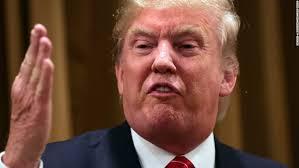Trump wants to build a wall on the Mexico border but Canada and the US need to build bridges and revamp their NAFTA deal into a customs union to allow workers and goods to flow freely.
Emerging technologies transform exponentially so a trade and taxation refresh is urgent.
The U.S. and Canada are both industrialized societies with strong institutions and little corruption. Language and laws are identical and they must move beyond the free trade agreement as have countries in the European Union. Mexico will remain a favored trade partner, but the border cannot be eliminated due to its weak institutions, crime and low incomes.
But the United States and Canada must leverage their similarities in order to continue to join forces by participating in the new economy of robotics, nanotechnology, biotech, artificial intelligence, computation and energy. Canadians play a large role, but mostly from a distance and with increasing difficulty, due to trade and immigration restrictions.
The border is a problem.
Without labor mobility to the U.S., Canada's technology clusters are stillborn or, in many cases, abandoned as individuals must export themselves. Without labor mobility, Americans cannot move north and U.S. corporations cannot recruit to the extent they might otherwise in Canada.
The Auto Pact took years of tough negotiations to pull off, as did NAFTA, but the next step is critical and here's how it would work: The border would be replaced with a perimeter around the two countries. This is the goal of Beyond the Borders, but progress has been glacial since 2011.
Today's most valuable assets are on two legs which is why a customs union for workers is essential. An estimated million educated, entrepreneurs from Canada work and live full time in the science, technology, engineering and financial clusters in Boston, California and New York. Many Americans would join clusters in the north but immigration hassles are problematic.
A customs union (and liberalization of bilateral immigration) would allow them to more easily set up shop, or commute, from Canada. Furthermore, many Americans would move north, grabbing the opportunity to move to Canada for social and political reasons, to tap talent here or to simply live in unique regions such as Vancouver Island or the Rockies or with friends and relatives.
Clusters should form where ideas, talent and capital exists irrespective of any artificially concocted border. This is what happens internally in both countries: workers move from state to state, or province to province, to join and contribute to startups and tech transformations.
The same should apply between these two countries: Canadians and Americans can continue to build the world's foremost technology sector if they can freely exchange labor, ideas and capita.
It's important to note the contribution that each country has made to the other: Canada's resource and infrastructure was built in large measure by Americans and great entrepreneurs such as Edison, Chrysler, Disney, Durant, Ford, Louis B. Mayer and the Warner Brothers, to name just a few. In tech, there is Jeff Skoll along with an estimated 300,000 Canadians in Silicon Valley and the same number in Boston/New York in science, tech and finance.
Emerging technologies are replacing traditional resources and manufacturing sectors and, while those are still important, the next President must designate a dynamic and well-funded innovation sector as a continental economic priority.
The key to prosperity is to remove the U.S.-Canada border impediments, physical and virtual, as quickly as possible, not to build walls.

